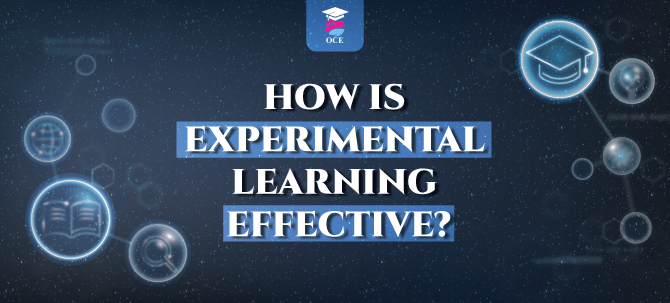Powerful Terminal And Command Line Seeny Tools Modern Designing Better Links For Websites
What is Experiential Learning?
There are several ways to pursue education and one of those ways is to get an education by experience. Whether you pursue education based on experience or without experience, the core philosophy of learning is still the same. Students learn the best when they experience something or repeat something. This is why teachers and administrators try to create opportunities for children to learn from experiences similar to real-life scenarios. By being a part of the experiment, the students will explore the learning process by practicing their critical thinking and problem-solving skills. Based on the kid’s intelligence and the behavior he or she learned in the class will be displayed how a kid engages with the task at hand during the experiment.
Different types of Experimental Education
Different types of experimental education are used for students.
1- Service-Learning:
: In this type, the focus of learning is on serving the community rather than gaining career experience. Students get the opportunity to work with experienced people in a new environment rather than a typical environment where they work for money. But during service learning, students are required to produce value through their experience just like a real-life experience. Service learning teaches students about generosity, justice, compassion, and other positive social principles. These skills are tangible, but students can utilize these skills later in their life.
2- Small Cohort Learning:
These programs aim to provide experiences in different areas of work and mentoring from expert professionals. Students join small groups that mainly focus on a particular area such as medicine, business, law, or cooking and farming. Stepping into various work environments allows students to put their concepts into action while having the advantage of expert mentoring.
3- Internships and Advanced Programs:
Internships are most common in institutions of higher education. where students are placed in a working set temporarily and may or may not be paid for their time. The plan is to fill the gap between a strictly academic setting and a real workplace. Interns get to see concepts in action while taking on their duties. This way, interns receive both educational and career experience to inform their future endeavors. Nowadays, many advanced, competitive programs offered over winter, spring, and summer breaks are similar in philosophy to internships.
What are the Benefits?
So, what experimental learning benefits can your child gain from joining one of the programs? First and foremost, experimental education allows students to grow emotionally, socially, and academically, and fully equips them for the complications of their next step in life. Students also learn how to uncover for themselves, rather than depending on only provided material, they develop investigative skills to learn answers to questions. There are some skills that textbooks can’t teach:
- Communication
- Conflict resolution
- Networking
- Negotiation
- Active listening
- Diplomacy
- Creative thinking
- Giving constructive criticism
Many interpersonal skills require nonverbal signs that can only be practiced through observation, students have much more to gain by facing these challenges in real, though low-risk scenarios. Experience-based knowledge provides these opportunities with the assistance of mentors and instructors.
Encourages Cooperation
Furthermore, by providing students with the required tools to work with others, practical education encourages students to seek help and support from peers. Program participants discover what it means by collaborating and how to take on leadership roles through their work. By working toward a shared goal, students can learn how to rely on others and contribute to others.



